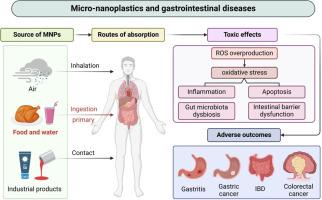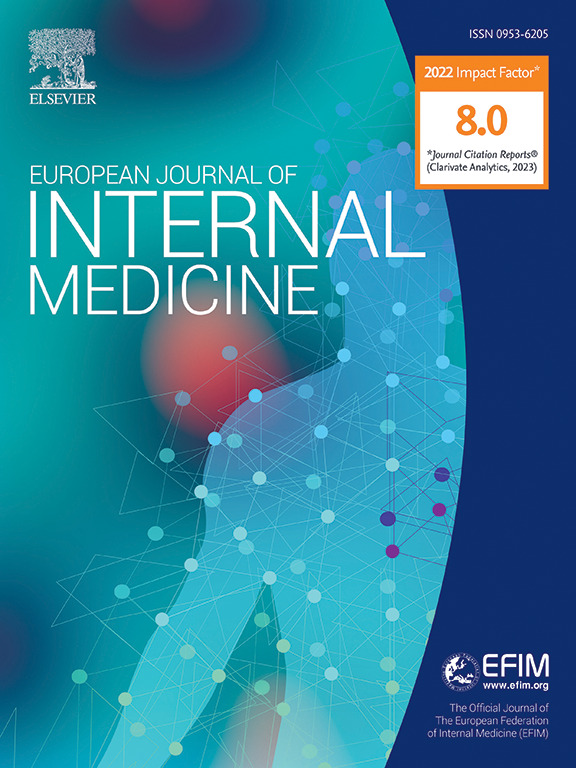微塑料和纳米塑料对胃肠道疾病的影响:最新进展。
IF 6.1
2区 医学
Q1 MEDICINE, GENERAL & INTERNAL
引用次数: 0
摘要
微塑料和纳米塑料(MNPs)是普遍存在的污染物,越来越多的人认识到它们可能对胃肠道(GI)健康产生不利影响。本文综述了MNPs暴露对胃肠道疾病的影响,特别是其毒理学机制,如氧化应激、炎症、细胞凋亡、肠道菌群失调和肠道屏障功能障碍。MNPs暴露引发的过多活性氧产生和持续的胃肠道炎症驱动上皮细胞凋亡并损害肠道屏障。同时,mnps诱导的肠道菌群失调进一步加剧了肠道炎症和屏障功能障碍。通过这些相互关联的途径,慢性MNPs暴露可能与胃肠道疾病的发生和进展有关,包括胃炎、胃癌、炎症性肠病和结直肠癌。然而,人类证据非常有限,并且尚未充分探索低剂量慢性MNPs暴露的长期影响。未来的研究应通过纵向流行病学研究、先进的实验模型和标准化的MNPs检测方法来解决这些不确定性,以完善风险评估并指导以证据为基础的政策,保障人类健康。本文章由计算机程序翻译,如有差异,请以英文原文为准。

Impact of micro- and nanoplastics on gastrointestinal diseases: Recent advances
Micro- and nanoplastics (MNPs) are ubiquitous contaminants increasingly recognized for their potential to adversely affect gastrointestinal (GI) health. This review provides a comprehensive overview regarding the impact of MNPs exposure on GI diseases, especially their toxicological mechanisms, such as oxidative stress, inflammation, apoptosis, gut microbiota dysbiosis, and intestinal barrier dysfunction. Excessive reactive oxygen species production and persistent GI inflammation triggered by MNPs exposure drive epithelial cell apoptosis and compromise the intestinal barrier. Meanwhile, MNPs-induced gut microbiota dysbiosis further exacerbate intestinal inflammation and barrier dysfunction. Through these interconnected pathways, chronic MNPs exposure may be associated with the occurrence and progression of GI diseases, including gastritis, gastric cancer, inflammatory bowel disease, and colorectal cancer. However, there are very limited human evidence, and the long-term impacts of low-dose, chronic MNPs exposure have not been sufficiently explored. Future research should address these uncertainties through longitudinal epidemiological studies, advanced experimental models, and standardized MNPs detection methods, to refine risk assessment and guide evidence-based policies that safeguard human health.
求助全文
通过发布文献求助,成功后即可免费获取论文全文。
去求助
来源期刊
CiteScore
9.60
自引率
6.20%
发文量
364
审稿时长
20 days
期刊介绍:
The European Journal of Internal Medicine serves as the official journal of the European Federation of Internal Medicine and is the primary scientific reference for European academic and non-academic internists. It is dedicated to advancing science and practice in internal medicine across Europe. The journal publishes original articles, editorials, reviews, internal medicine flashcards, and other relevant information in the field. Both translational medicine and clinical studies are emphasized. EJIM aspires to be a leading platform for excellent clinical studies, with a focus on enhancing the quality of healthcare in European hospitals.

 求助内容:
求助内容: 应助结果提醒方式:
应助结果提醒方式:


